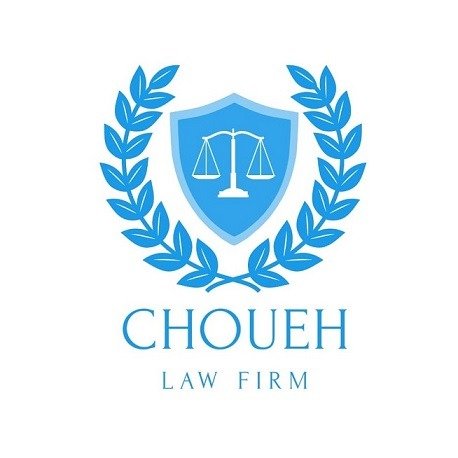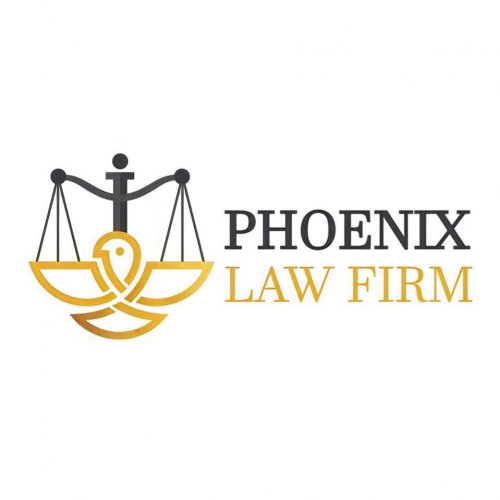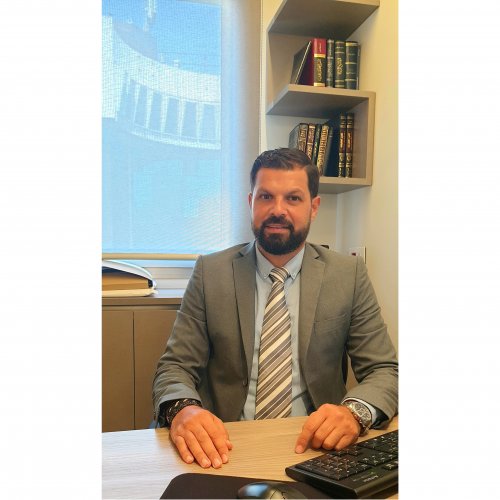Best Project Finance Lawyers in Beirut
Share your needs with us, get contacted by law firms.
Free. Takes 2 min.
List of the best lawyers in Beirut, Lebanon
About Project Finance Law in Beirut, Lebanon
Project Finance refers to the long-term financing of infrastructure and industrial projects based on the projected cash flows of the project rather than the balance sheets of its sponsors. In Beirut, Lebanon, Project Finance plays a crucial role in facilitating investments in sectors such as energy, telecommunications, water, transport, and real estate development. The legal landscape surrounding Project Finance is shaped by a combination of Lebanese civil law, international standards, and evolving financial practices, especially in response to economic challenges and development goals within the country.
Why You May Need a Lawyer
Engaging in Project Finance in Beirut involves complex legal and regulatory frameworks. You may require legal assistance in the following situations:
- Negotiating and drafting project agreements, including loan facilities, shareholder agreements, and security documents
- Conducting due diligence to identify and address legal risks
- Navigating the approval processes with governmental and regulatory bodies in Lebanon
- Structuring Special Purpose Vehicles (SPVs) to separate project assets and liabilities
- Dealing with cross-border transactions and international stakeholders
- Ensuring compliance with Lebanese law and sector-specific regulations
- Handling disputes or restructuring financing following changes in economic conditions
- Advising on tax planning and liability allocation
Lawyers experienced in Project Finance can provide strategic guidance, help avoid costly mistakes, and ensure that your interests are protected throughout the finance lifecycle.
Local Laws Overview
Project Finance in Beirut, Lebanon, operates within the framework of Lebanese civil law, commercial law, and sector-specific regulations. Some key legal aspects include:
- Security Interests: Lebanese law recognizes various forms of security, including mortgages, pledges, and assignments of project revenues, but with formal registration requirements for enforceability.
- Special Purpose Vehicles: SPVs are frequently used for isolation of project assets and risks. The structuring of SPVs must comply with Lebanese Company Law, often adopting a joint-stock or limited liability company model.
- Public Private Partnerships (PPPs): Lebanon has adopted PPP frameworks to facilitate infrastructure development, with specific regulatory processes and approval requirements.
- Foreign Investment: While Lebanon encourages foreign investments, certain sectors may have restrictions, and currency controls can sometimes affect capital flows.
- Regulatory Approvals: Major infrastructure projects require licenses or approvals from authorities such as the Ministry of Energy and Water, the Ministry of Finance, or relevant municipal bodies.
- Dispute Resolution: Contracts often specify arbitration or Lebanese courts for resolving disputes, with Beirut being a recognized seat for arbitration in the region.
It is vital to understand these laws and regulations before entering into any Project Finance arrangement in Beirut.
Frequently Asked Questions
What is Project Finance and how is it used in Beirut?
Project Finance refers to a method of funding projects through a structured arrangement where repayment is made from the cash flow generated by the project itself. In Beirut, it is commonly used to fund large-scale infrastructure and development projects.
What are the typical steps involved in a Project Finance transaction in Lebanon?
Processes generally include project structuring, risk allocation, obtaining finance, negotiating contracts, securing regulatory approvals, and establishing an SPV for the project.
Are foreign investors allowed to participate in Project Finance deals in Beirut?
Yes, foreign investors are permitted to participate, although there may be sector-specific restrictions and requirements for governmental approvals.
What security interests are typically used in Lebanese Project Finance?
Common forms include mortgages over real estate, pledges over shares, assignments of contract rights, and pledges over project accounts. Registration and compliance with Lebanese law are essential.
How are disputes in Project Finance transactions resolved?
Disputes can be settled through arbitration (often in accordance with international rules) or Lebanese courts, depending on the contract provisions.
What is a Special Purpose Vehicle (SPV) and why is it used?
An SPV is a separate legal entity established to isolate project risks and assets. It is often used in Project Finance to limit liability and facilitate the management of project revenues and debts.
Do Project Finance agreements in Lebanon require government approval?
Many projects, particularly those related to public infrastructure or involving PPPs, require approvals or licenses from relevant government ministries or bodies.
What are the typical risks associated with Project Finance in Beirut?
Risks include regulatory changes, currency fluctuations, political instability, credit risk of parties, construction delays, and operational challenges.
Are there any tax incentives for Project Finance projects in Lebanon?
Lebanese law may provide certain tax exemptions or incentives for specific sectors or within PPP frameworks. Legal counsel can clarify eligibility and application procedures.
How long does it take to complete a Project Finance transaction in Beirut?
The timeline varies depending on the size and complexity of the project, but transactions can take several months to over a year, factoring in due diligence, negotiations, approvals, and financial closure.
Additional Resources
For further support and information related to Project Finance in Beirut, consider the following resources:
- Ministry of Finance (responsible for tax and financial regulation)
- Investment Development Authority of Lebanon (IDAL) - assists with investment regulations and incentives
- Ministry of Energy and Water (for energy and infrastructure projects)
- Lebanese Order of Lawyers (Bar Association) - for locating qualified legal professionals
- Chamber of Commerce, Industry, and Agriculture of Beirut and Mount Lebanon
- International Finance Corporation regional office (for best practices and funding opportunities)
Next Steps
If you need legal assistance with Project Finance in Beirut, Lebanon, consider the following steps:
- Outline your project details, including financial needs, stakeholders, and sector
- Prepare all relevant documentation, including business plans, feasibility studies, and financial models
- Consult with a lawyer knowledgeable in Lebanese Project Finance law and local regulations
- Request an initial meeting to discuss your objectives, potential structures, and risk management strategies
- Engage legal counsel for guidance throughout negotiations, due diligence, and contractual arrangements
Choosing the right legal partner early in the process will help ensure that your project proceeds smoothly, remains compliant with Lebanese law, and is protected against foreseeable risks.
Lawzana helps you find the best lawyers and law firms in Beirut through a curated and pre-screened list of qualified legal professionals. Our platform offers rankings and detailed profiles of attorneys and law firms, allowing you to compare based on practice areas, including Project Finance, experience, and client feedback.
Each profile includes a description of the firm's areas of practice, client reviews, team members and partners, year of establishment, spoken languages, office locations, contact information, social media presence, and any published articles or resources. Most firms on our platform speak English and are experienced in both local and international legal matters.
Get a quote from top-rated law firms in Beirut, Lebanon — quickly, securely, and without unnecessary hassle.
Disclaimer:
The information provided on this page is for general informational purposes only and does not constitute legal advice. While we strive to ensure the accuracy and relevance of the content, legal information may change over time, and interpretations of the law can vary. You should always consult with a qualified legal professional for advice specific to your situation.
We disclaim all liability for actions taken or not taken based on the content of this page. If you believe any information is incorrect or outdated, please contact us, and we will review and update it where appropriate.










